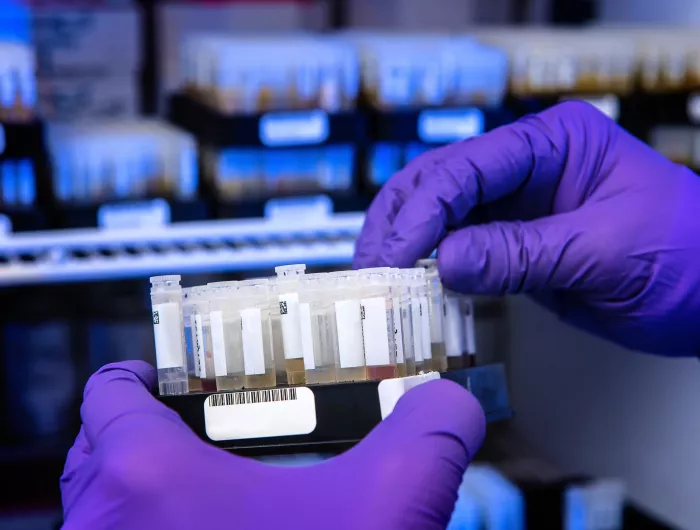FDA finalizes much-needed rule to regulate laboratory-developed tests

CDC.
In a critical step forward, FDA’s rule closes a longstanding regulatory loophole
CSPI applauds the Food and Drug Administration’s final rule regulating laboratory-developed tests (LDTs) published today. LDTs, a subset of in-vitro diagnostic tests, are commonly used by patients and healthcare providers to inform treatment decisions, yet they have operated without regulatory oversight for decades. The final rule addresses a long-standing regulatory gap and safeguards patients from potentially unreliable diagnostic tests.
“As the complexity and importance of these tests in healthcare have increased, ensuring their accuracy has become more crucial,” said Dr. Peter Lurie, President of the Center for Science in the Public Interest, who while an Associate Commissioner at FDA in 2015, led a report outlining some of the dangers of unregulated LDTs. “This rule is long overdue and will usher in a new era of accountability and heightened consumer protection.”
The rule clarifies FDA’s intent to regulate LDTs as medical devices, a power the agency has held since 1976, when Congress passed the Medical Device Amendments giving the FDA responsibility for ensuring that medical tests are safe and effective before being marketed. While LDTs were technically covered by that law, the FDA has until now used its discretion to avoid enforcing premarket approval standards or post-market monitoring requirements on the test manufacturers. These tests initially represented a small fraction of the medical test market but have grown in complexity and availability over the years, giving them a much greater potential to impact human health.
The consequences of poorly performing tests include excess false-positives (which can lead to needless treatment) and false-negatives (which can result in the failure to administer effective treatment). The newly issued rule mandates that LDT manufacturers begin to comply with FDA safety and effectiveness standards over a structured, four-year period.
CSPI supports several elements of the final rule, including:
- Registration and listing requirements for all tests, which will allow FDA and the public to know what tests are available.
- No blanket carveout for Academic Medical Centers. Only LDTs developed and used for unmet needs in a laboratory that is part of that academic center’s healthcare system will not be regulated.
Despite the much-needed regulation, the final rule falls short in several domains:
- It generally exempts tests currently on the market from oversight by FDA. However, FDA will collect relevant information, such as labeling and adverse event reporting, to be able to identify and address tests that raise public health concerns. This is likely a concession to the lack of additional resources available to the agency to enforce the new requirements.
- It exempts tests approved by the New York State Clinical Laboratory Evaluation Program (NYS CLEP) from Quality Systems and premarket approval requirements. CSPI does not believe that outside programs such as NYS CLEP should replace FDA review of LDTs, because they may not have the expertise to fully regulate these tests in the way that FDA does. But the FDA regulation points out that about half of products originally presented to NYS CLEP could not be approved, so clearly the state is not rubber-stamping these products.
Communication between NYS and FDA will be critical, and FDA will continue to enforce company registration, product, listing, and adverse event reporting requirements.
Congress has recognized the need for better LDT regulation, proposing the VALID Act as an alternative way for FDA to regulate LDTs based on risk. Yet federal lawmakers have repeatedly been unsuccessful in passing the bill in each of the last four years. In fact, in the House Fiscal Year ‘24 agriculture appropriations report, Congress itself urged FDA to proceed with its LDT regulation. With the presidential term now coming to a close, Congressional inaction has left FDA with no choice but to promptly finalize the rule.
# # #
Tags
Topics
Contact Info: Lisa Flores, 202-777-8368 or Jeff Cronin, 202-777-8370

